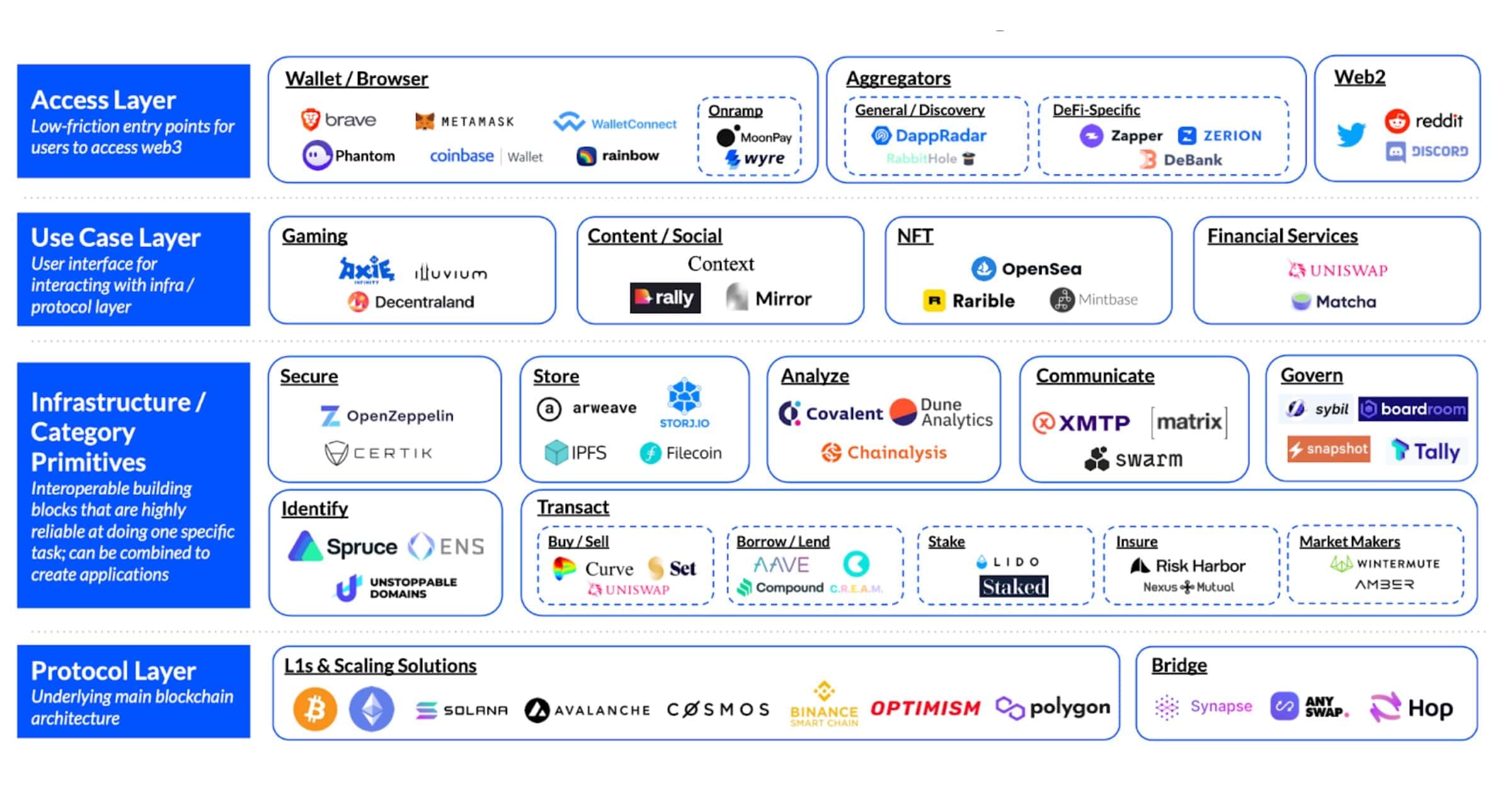A recent report from Coinbase examines the web3 stack, or the various protocols and blockchain technologies that make up the ecosystem.
Where a third party like Facebook owns your identity and data in Web2, your identity in Web3 can move fluidly between platforms without your data being captured and monetized by service providers. While Web2 apps are centrally controlled, tokens in Web3 grant users the right to help govern the services they use, representing a form of ownership in the platforms themselves.
Check It Out: What is Web3? Explaining the Technology Stack in This New Ecosystem

Andrew:
Having only skimmed through the article, this looks promising. Assuming that I understand it, my first thoughts are these.
The creativity in leveraging blockchain distributed ownership into reclaiming user data from the social media ‘surveillance capitalist’ model is brilliant, provided that it can actually work as conceived, and that FB and others could not devise some way to sabotage or circumvent it.
This is a fight over data ownership and providing the users with a measure of control. Social media platforms, like FB, believe that they are entitled to user data ownership by virtue of their having provided ‘services’ that must be paid for by monetising those user data.
I think one way FB (Meta) might retaliate is by creating their own portal through which, alone, users could access their ‘services’, requiring the user to expose and hand over their data and have their browsing history tracked. Google might ‘break’ the user experience on their platforms, such that their services no longer work as expected unless signing into an approved portal via an app that is a Web3 workaround. History suggests that anything that threatens a dominant business model will be strenuously resisted by that industry, in the market, in the legislature and in courts of law. We should not be surprised if special interests, including from the business sector that relies on advertisements, require that access to Web3 technologies be an ‘opt-in’, or by other means grants access to data on user behaviour. This is technology is unlikely to affect Nation-state actors in any meaningful way, so it is unclear how they might respond to private sector complaints.
I think this is an evolutionary step, and with all things evolutionary, this will be an arms race.
Back to the salt mines.